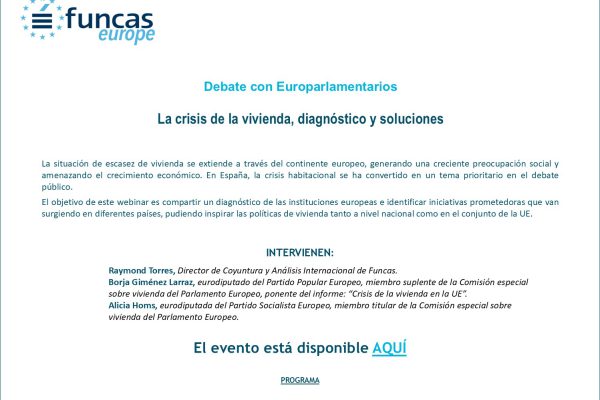Europe’s trade stress test in 2026: coercion, alliances and the single market
Trade sits at the intersection of Europe’s economic risks and its strategic opportunities. That was the starting point of the latest Future is Blue episode, where we spoke with Ignacio García Bercero, Bruegel Senior Fellow and former EU chief trade negotiator with the United States, and Miguel Ángel González-Simón, economist at Funcas.

